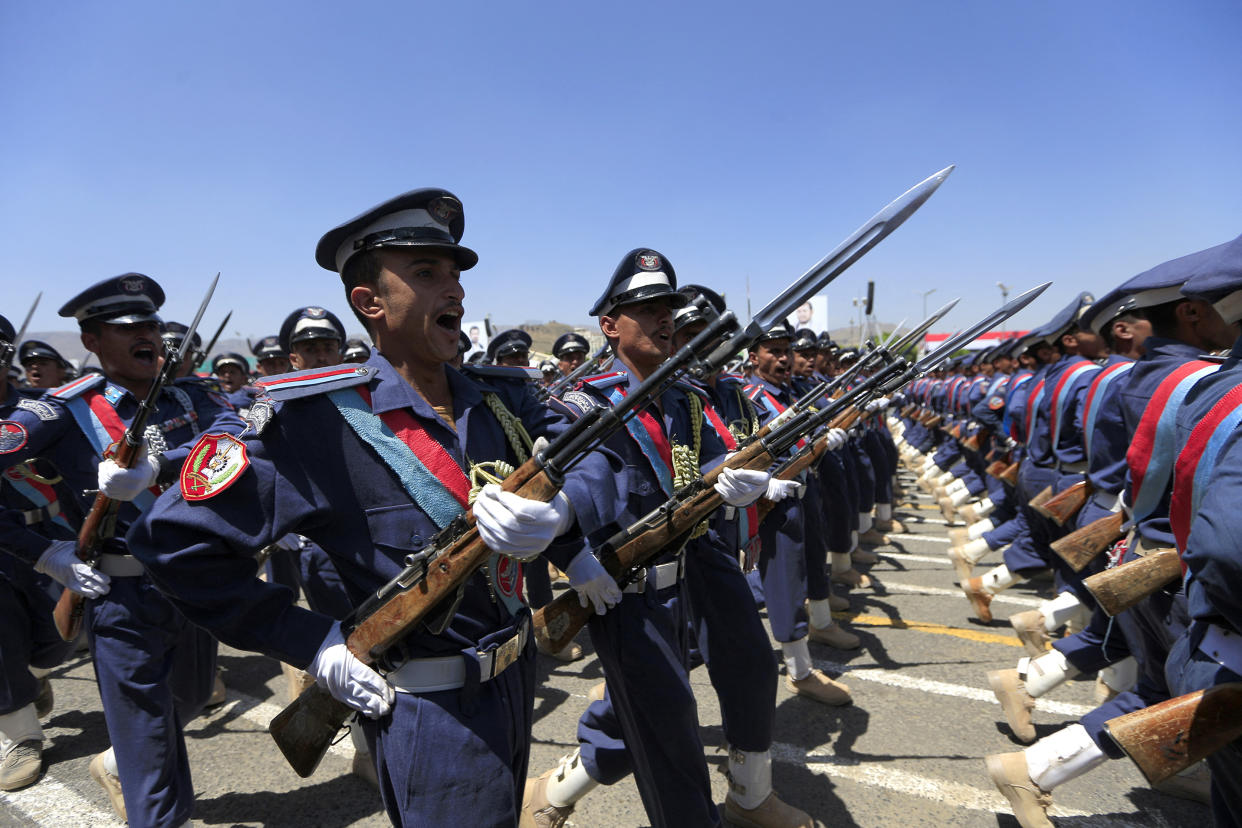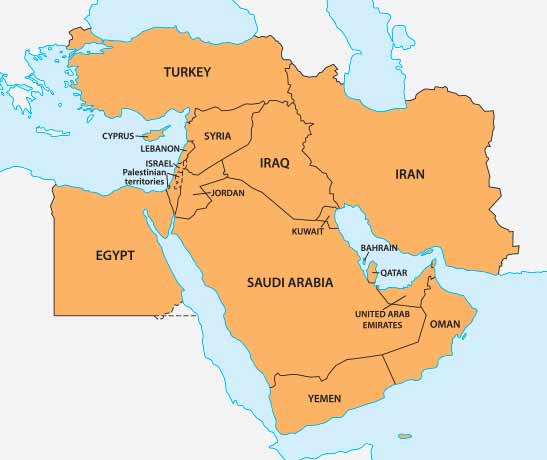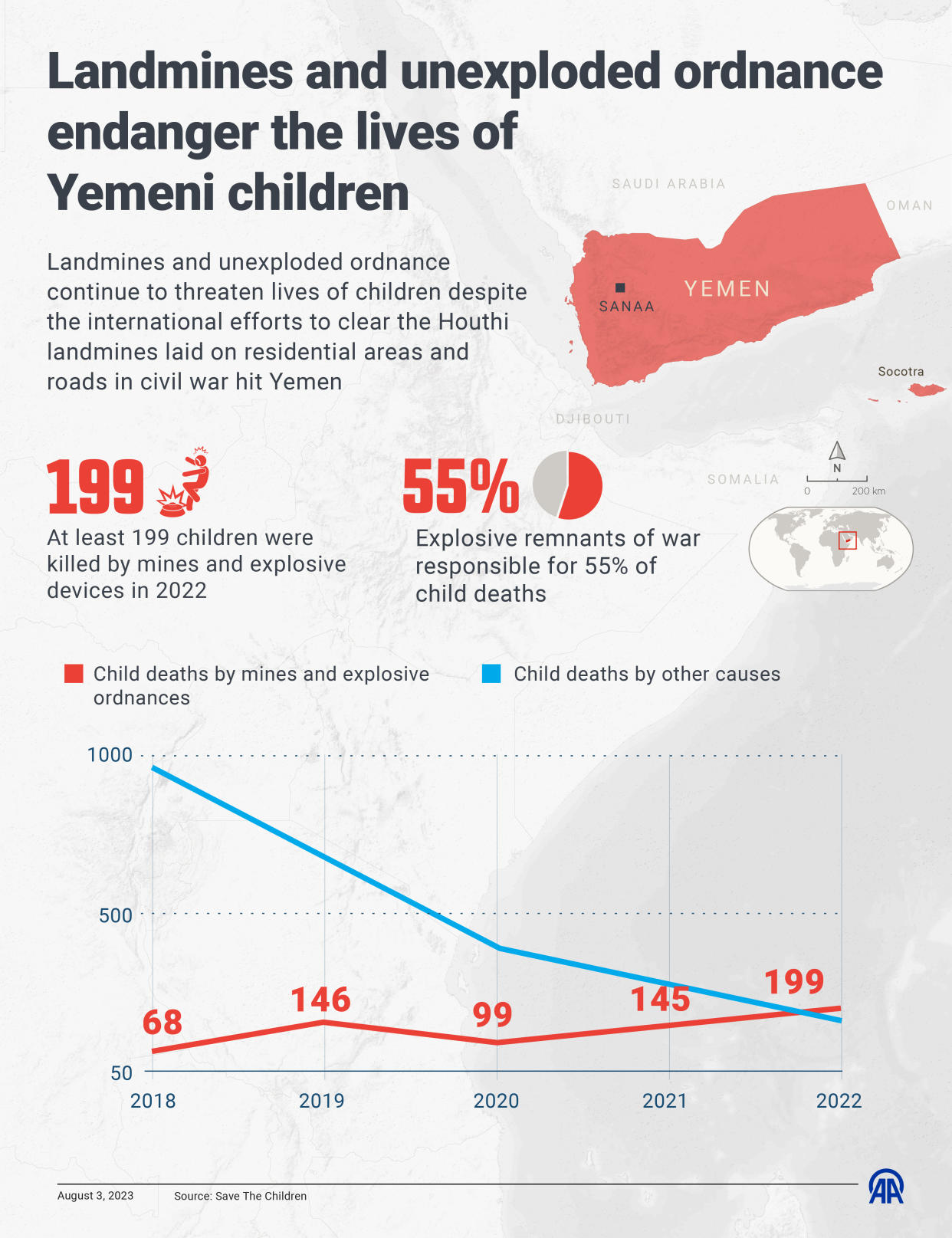Israel-Gaza conflict: Who are the Houthi rebels in Yemen - and why does Iran back them?

A US warship has intercepted three cruise missiles and several drones launched by the Iran-aligned Houthi movement from Yemen.
The Pentagon said they may have been targeted at Israel.
A spokesman said: "We cannot say for certain what these missiles and drones were targeting, but they were launched from Yemen heading north along the Red Sea, potentially towards targets in Israel.”
The potential involvement of the Houthis in the Israel-Gaza war is another factor which will concern world leaders trying to prevent the violence spilling over into a wider Middle East conflict.
Here, Yahoo News UK breaks down who the Houthis are and what their relevance is.
Recommended reading
Egypt and Cyprus: What is the latest travel advice?(Yahoo News UK)
US troops attacked in Iraq and Syria as West warns of ‘spillover’ (The Guardian)
Israel evacuates a border town as war threatens to expand (CBS News)

Who are the Houthi rebels?
The Houthis are described by the Counter Extremism Project (CEP), an organisation which works to combat extremist groups and ideologies, as "an Iranian-backed, Shiite Muslim armed religious and political movement in Yemen".
The Houthis are at the centre of Yemen's civil war. According to a US Department of State report, they control "one-third of the country’s territory, which contains 70% to 80% of the population".
The group swept into Yemen's capital, Sanaa, in 2014 when it ousted the internationally recognised government.
Saudi Arabia and the United Arab Emirates intervened in the war in 2015 to try to restore the government, but the conflict has dragged on - with dire consequences.
In 2021, the UN estimated the war had caused 377,000 deaths through direct and indirect causes such as poor food security and a collapse of public services. The agency also says more than 11 million children are in need of humanitarian assistance.
Meanwhile, the below image shows how hundreds of children have been killed by Houthi-laid landmines and explosive devices.

The Houthi movement is also known for its anti-American and anti-Semitic rhetoric. Its slogan reads: “God is great, death to America, death to Israel, damnation to the Jews, victory to Islam.”
How and why does Iran support them?
Iran and Saudi Arabia are engaged in proxy wars in several Middle Eastern countries. In Yemen, that manifests with Iran's backing of the Houthis and Saudi's backing of Yemen's official government.
The UK has previously handed evidence to UN Security Council members demonstrating how the Iranian regime sends weapons to the Houthis.
The Wilson Center, the US global affairs think tank, says: "Yemeni officials and Sunni states have repeatedly alleged that Iran and its proxy Hezbollah have provided arms, training, and financial support to the Houthis. But Iranian and Hezbollah officials have denied or downplayed the claims."
How do they link to the Israel-Gaza conflict?
The Houthis, and Thursday's possible missile launch, embody Western fears that the conflict could spread.
For a start, the Houthi movement has a long-standing association with Hamas.
The CEP points out: "Higher-ups in the Houthi movement have expressed support for Hamas. Before he was killed in 2004, Houthis founder Hussein al-Houthi made it a point to praise Hamas for its wars against Israel."
It adds Hamas "maintains a representative in Houthi-held territory in Yemen".
On 10 October, three days after the Israel-Gaza conflict began, Houthi leader Abdel-Malek al-Houthi warned the group would respond to US involvement by firing drones and missiles.
He said "there are red lines when it comes to Gaza" and that the Houthis were ready to coordinate with other groups and intervene.
Watch: Sunak pleads for Middle East stability as Israel wages ‘long war’ with Hamas
The US, which is Israel's closest ally, subsequently sent a significant amount of naval power to the Middle East, including two aircraft carriers, their support ships and about 2,000 Marines.
Then, on Thursday, one of its warships intercepted the three cruise missiles and several drones launched by the Houthis "potentially towards targets in Israel".
This comes after attacks against Israel have also been launched from Lebanon, where the Hezbollah group is backed by Iran.
It's in this tense climate that Rishi Sunak called on Friday for world leaders to do “everything possible to prevent” the violence in Israel and Gaza spilling over into a wider Middle East conflict.
The prime minister met with the Qatari ruler Sheikh Tamim bin Hamad Al-Thani on Friday. Qatar is seen as a key mediator in the conflict. Sunak then flew to Egypt, the third stop on his tour of the region, which is part of a diplomatic effort to stop the war from escalating.


